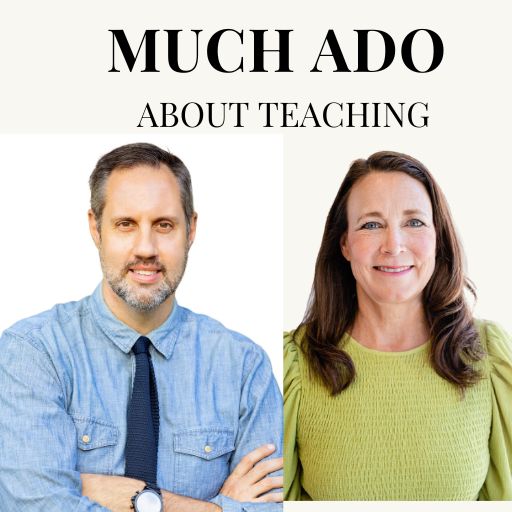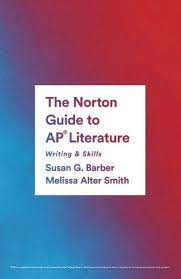Tidbits of Knowledge
- The novel was first finished in 1797 but was not published for another 16 years! Austen wrote it when she was 21 years old. The novel made Austen little money as she sold the book outright rather than taking royalties – she was given £110, although the first run made the publisher more than four times that, and Austen never saw a penny of it.
- Despite her many romantic story lines, neither Austen nor her sister married – although she was engaged for a day to a wealthy family friend, Harris Bigg Wither. At this time, the breaking of an engagement was scandalous, and caused a lot of tension between the families, and further tension between Austen and her mother.
- She was one of eight children, and was extremely close with her only sister, Cassandra. The two girls were sent to boarding school together, but returned after only a year as the family could not pay their tuition fees. So Jane educated herself. They were given free reign of their father and uncle’s extensive library, and were both encouraged to write.
- In the book, the Bennet family is almost ruined when Lydia elopes with the nefarious soldier George Wickham to Scotland. “I am going to Gretna Green,” Lydia writes to her friend, “and if you cannot guess with who, I shall think you a simpleton.” Unlike England, Scotland allowed people under 21 to get married without parental consent, and without the same legal and religious bureaucracy. Gretna Green was the first town over the Scottish border. There, a young couple could be joined with “marriage by declaration,” which often occurred in a blacksmith shop.
- Pride and Prejudice is about young women of genteel poverty trying to find good marriage matches. This issue must have been fresh on the young author’s mind when she wrote the book. At age 20, she had a flirtation with a young man named Tom Lefroy. Like a scene out of one of her novels, she flirted scandalously with him at a ball. “Imagine to yourself everything most profligate and shocking in the way of dancing and sitting down together,” she wrote to her sister Cassandra. “He is a very gentlemanlike, good-looking, pleasant young man, I assure you.” But Austen’s social status wasn’t high enough and Lefroy’s family separated the two lovebirds. Lefroy was soon engaged to a woman with a large fortune. Austen wrote her sister: “At length the day is come on which I am to flirt my last with Tom Lefroy … My tears flow as I write this, at this melancholy idea.”
- It is rumored that the character of Mr Darcy was based on Austen’s love interest, Thomas Lefroy, an Irish lawyer who she had a brief friendship with over the winter of 1795/1796.
- At first glance, the title appears to refer to Mr Darcy’s pride, and Elizabeth’s prejudice against him – however, closer inspection reveals that both characters possess both qualities, with Elizabeth’s pride being hurt by Darcy’s rejection and Darcy being prejudice against Elizabeth because of her social class. The novel reveals the characters growing together to amend their pride and remove their prejudices of each other and the world in which they live.
This book is on the following lists:
- – 1st on The 100 Favorite Novels of Librarians (Bookman.com)
- – 2nd on Harvard Book Store Staff’s Favorite 100 Books (Harvard Book Store)
- – 3rd on Entertainment Weekly’s Top 100 Novels (Entertainment Weekly)
- – 11th on The 100 Greatest British Novels (BBC)
- – 11th on The Telegraph’s 100 Novels Everyone Should Read (Telegraph)
- – 13th on El Pais Favorite Books of 100 Spanish Authors (El Pais)
- – 16th on The 100 Greatest Novels (greatbooksguide.com)
- – 22nd on The Top 10: The Greatest Books of All Time (The Top 10 (Book))
- – 100 Books to Read in a Lifetime (Amazon.com (USA))
- – W. Somerset Maugham’s Ten Greatest Novels of All Time (Great Novelists and Their Novels)
- – Books That Changed the World: The 50 Most Influential Books in Human History (Book)
- – The New Lifetime Reading Plan (The New Lifetime Reading Plan)
- – Masterpieces of World Literature (Frank N. Magill)
- – The Book of Great Books: A Guide to 100 World Classics (Book)
Favorite Quotes:
- “Do anything rather than marry without affection.”
- “The distance is nothing when one has motive.”
- “There are few people whom I really love, and still fewer of whom I think well. The more I see of the world, the more am I dissatisfied with it; and every day confirms my belief of the inconsistency of all human characters, and of the little dependence that can be placed on the appearance of merit or sense.”
- “Vanity and pride are different things, though the words are often used synonymously. A person may be proud without being vain. Pride relates more to our opinion of ourselves, vanity to what we would have others think of us.”
- “Angry people are not always wise.”
- “I am the happiest creature in the world. Perhaps other people have said so before, but not one with such justice. I am happier even than Jane; she only smiles, I laugh.”
- “From the very beginning— from the first moment, I may almost say— of my acquaintance with you, your manners, impressing me with the fullest belief of your arrogance, your conceit, and your selfish disdain of the feelings of others, were such as to form the groundwork of disapprobation on which succeeding events have built so immovable a dislike; and I had not known you a month before I felt that you were the last man in the world whom I could ever be prevailed on to marry.”
- “An unhappy alternative is before you, Elizabeth. From this day you must be a stranger to one of your parents. Your mother will never see you again if you do not marry Mr. Collins, and I will never see you again if you do.”
- “Her heart did whisper that he had done it for her.”
- “They were within twenty yards of each other, and so abrupt was his appearance, that it was impossible to avoid his sight. Their eyes instantly met, and the cheeks of each were overspread with the deepest blush. He absolutely started, and for a moment seemed immoveable from surprise; but shortly recovering himself, advanced towards the party, and spoke to Elizabeth, if not in terms of perfect composure, at least of perfect civility.”
Teaching Focus
- Satire
- How does this novel use humor, irony, exaggeration, or ridicule to expose and criticize people’s stupidity or vices?
- The 4 Ms
- Jackie Squillance Laba has a great PowerPoint on the AP Lit. Facebook group explaining the 4 Ms of the novel — money, marriage, manners, and morals.
- Have students study gender roles and the British social hierarchy of the time
- Which characters conform? Which characters defy?
- Create charts and organizers to keep track of the families and estates (so many characters, so easy to confuse)
- Use the original title, First Impressions, to determine if the initial impression of each character was false, accurate, revised, and revealed more about the perceiver than the subject.
- Analyze each of the marriages in the novel, determining what each is based on and what it might represent to the reader. Jennifer Isgitt believes that Elizabeth and Darcy show the importance of self-knowledge in a relationship for it to be successful–that’s a main reason the other relationships struggle or don’t work:
- Mr. and Mrs. Bennet (didn’t understand each other enough before they got married)
- Charlotte and Collins (completely practical)
- Lydia and Wickham (completely physical)
- Jane and Bingley (too dependent on what other people think)
- Elizabeth and Darcy (a relationship that has to overcome a lack of self-knowledge; as they grow to understand themselves, they understand each other)
Activities
- Pride and Prejudice daily journals — Every day my students wrote for 10 minutes about P+P using these journal prompts.
- Have students write fake prom-posals in the style and voice of a particular character
- 6 Scenes to Themes for Pride & Prejudice
- After watching episodes of The Lizzie Bennet Diaries, have students create their own episode for another character in the novel (Charlotte, Jane, Lydia, etc.)
- Q3 prompts – 2022, 2021, 2019, 2018, 2016, 2015, 2014, 2012, 2008, and 1996
- The Wicked Wit of Jane Austen
- At the end of the novel, write a letter to students explaining why they read this novel. Have your students write a letter to next year’s class explaining what they got out of the novel.
- Get inside the mind of Elizabeth Bennet by charting all the competing interests
- Have students take Enneagram tests as Lizzie and Darcy
- This will give students a working vocabulary to write about each character’s complexity
- My class always has Elizabeth as an 8. Look at how apt this description is: Eights have enormous willpower and vitality, and they feel most alive when they are exercising these capacities in the world. They use their abundant energy to effect changes in their environment—to “leave their mark” on it—but also to keep the environment, and especially other people, from hurting them and those they care about. At an early age, Eights understand that this requires strength, will, persistence, and endurance—qualities that they develop in themselves and which they look for in others.













2 comments
Daniel
Thanks so much for the great overview and teaching resources. Marilyn Butler’s Jane Austen and the War of Ideas places P&P in contemporary context and emphasizes the conservative polemics of the novel. Claudia Johnson pushes back on Butler some and traces Romantic developments in Austen’s heroines. Tony Tanner’s essay in his book on JA is a gem. Satire give students a hard time, and teachers too. Satire issues from a set of values that are perceived to be under assault. What is JA seeking to preserve and what is the threat she is fending off? D. W. Harding’s essay, “Regulated Hatred,” is eye opening and helps me see some of the devastatingly mean moments in the novel. There is anger and a touch of malice is some of her character sketches. Students love reading what Mark Twain, Henry James, and Virginia Woolf have to say about Austen. Austen’s letter to her nephew in which she likens herself to a miniaturist working on “two inches of ivory” is a masterclass in ironic self-deprecation, I hope! Thanks again.
Vincent Anastasi
Greetings: I’m not a Facebook user. Is there any way to access the 4M’s materials you reference in your post for us not social media folk? Thanks.